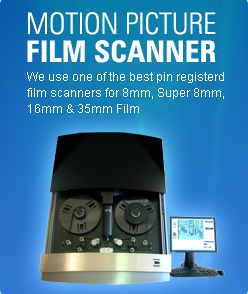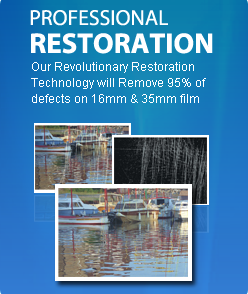
The first table shows how the same film looks using our 4 different processes. You can see that the difference can be significant for our Aurora customers.
The second table presents a case for scanning 8mm and Super 8 film at 2K resolution. In the past year we have done 20 comparisons. Contrary to popular belief, we do see a noticeable difference in quality between our Pro HD and Pro 2K process on 8mm and Super 8 film.
In general it is recommended that you scan at or above the resolution of the film. For 8mm and Super 8 that means scanning at HD or 2K.
8mm And Super 8 Film Aurora |
|
SD Scan
|
|
Pro HD Scan
|
|
Pro 2K Scan
|
|
Pro 4K Scan
|
|
Film Resolution |
|
Resolution of Film |
|
Film Grain
|
|
Film Grain vs Digital Pixel
|
|
So, for example, if you are looking for the best quality DVD, scan your 8mm or Super 8 at HD. If you are looking to go to BluRay then scan your 8mm or Super 8 at 2K.
Professional films usually have access to the original camera negative in addition to work prints, answer prints, etc. It is always better to scan using the original camera negative.
Aurora Fun Facts: Eisenhower recovered from a heart attack in the city and world attention was then focused on Aurora. Aurora, Colorado is the state's third largest city, and it's known for its cultural food, artistic exhibits, outdoor recreation, and relaxing atmosphere. Sailing, golfing, art, fast-pitch softball, and live theater are examples of common things to do in the city. The population is 277,000 and is expected to reach the 300,000 milestone soon.
Colorado Fun Facts: First explored by Europeans in the late 1500s (the Spanish referred to the region as “Colorado” for its red-colored earth), the area was ceded to the United States in 1848 with the Treaty of Guadalupe Hidalgo that ended the Mexican-American War (1846-48). In 1858, the discovery of gold in Colorado attracted new settlers. During the Plains Indian Wars (1860s-80s), Colorado’s wild frontier was the scene of intense fighting between Native Americans and white settlers. In the 21st century, Colorado continues to rely on its natural resources as well as agriculture and tourism to sustain its economy.











